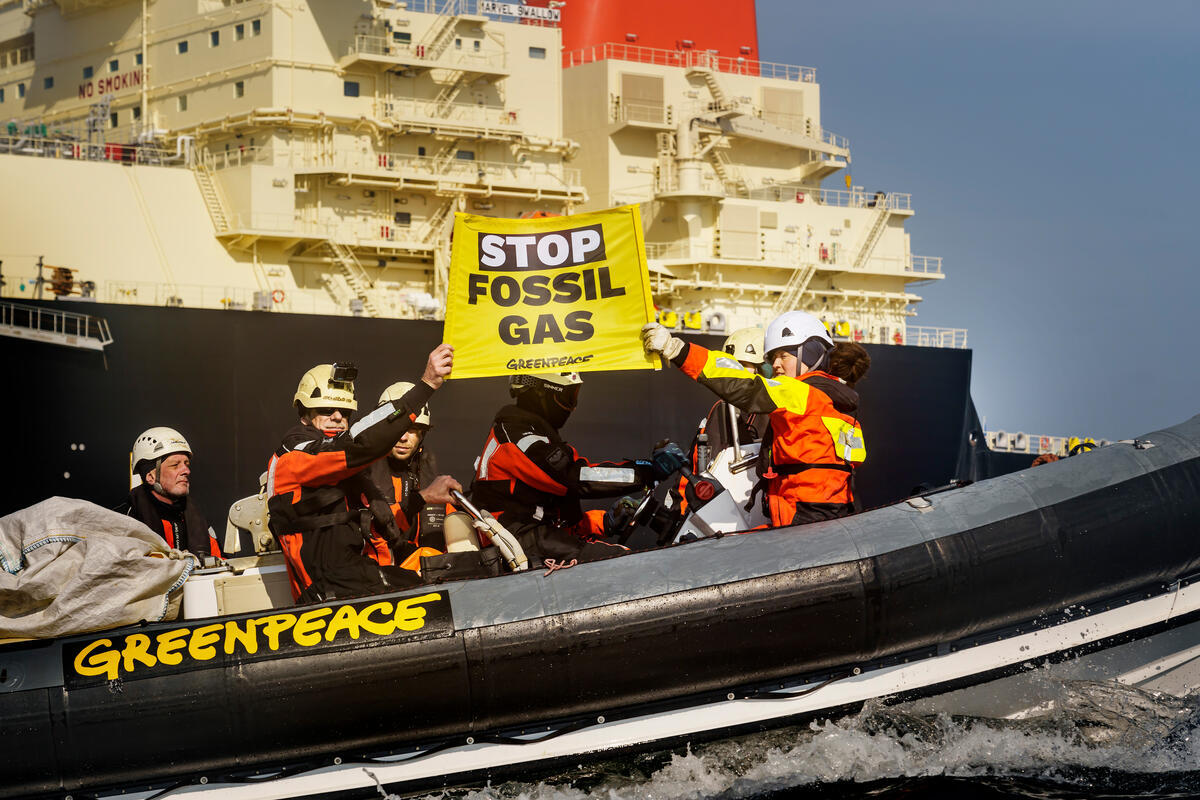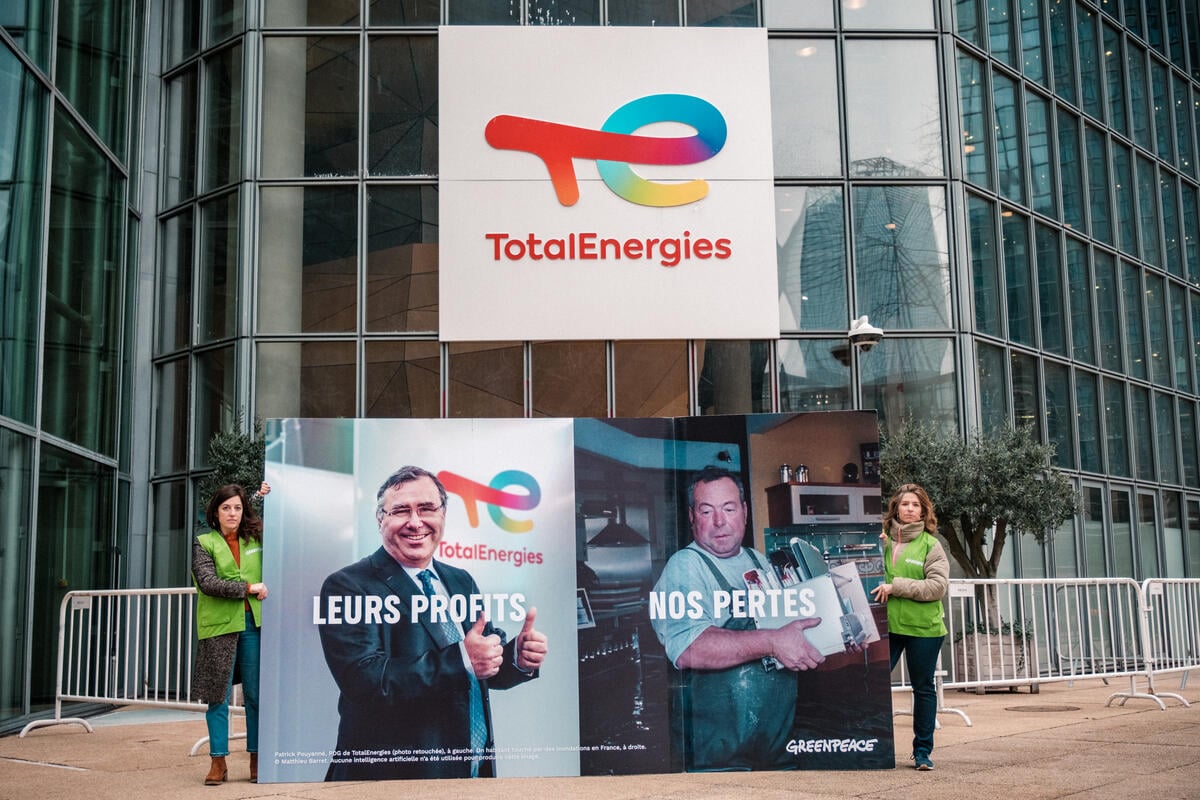This year didn’t start well. In January, off the coast of Thailand, thousands of litres of oil leaked into the sea from an underwater pipeline courtesy of Chevron’s subsidiary. The resulting spill blackened waters and beaches, killing local wildlife and threatening the livelihoods of communities reliant on the sea.
In Peru on January 15 more than 10,000 barrels of crude oil spilled from a tanker pumping oil into a Repsol refinery just south of Lima, after heavy swells slammed into the coastline in a tsunami that followed the volcanic eruption near Tonga more than 10,000 kilometres away. The spill covers over 100sq km - the size of Paris – and is wreaking havoc in one of the world’s richest marine ecosystems. Beaches are tarred and dead fish, seabirds and marine mammals such as sea otters abound.
Towards the end of January Al Jazeera reported that 6,300 barrels of oil spewed from a ruptured pipeline in eastern Ecuador and reached a protected area of the Amazon rainforest, contaminating the Cocal river that supplies water to Indigenous communities. The Kichwa Peoples are still demanding justice.
At the start of February the FPSO Trinity Spirit moored off the Nigerian coast exploded killing at least five of the ten crew. At the time it was holding 50-60,000 barrels, although it had a capacity of 2 million. Built in 1976, the vessel “should have been scrapped decades ago,” environmental justice advocate Nnimmo Bassey told the BBC’s Newsday programme.
Barely three months later in the Niger Delta more than 100 people, including children, were killed in an explosion at an illegal oil refinery. This deadly booming trade is another tragic indicator of inequality, impoverishment and an extractive polluting energy system in disarray.
Disaster looming
Right now in the Red Sea, off the coast of Yemen, the FSO Safer, one of the world’s oldest and largest tankers, holding 1.1 million barrels (140,000 tonnes) of crude oil threatens to leak or explode any moment, releasing its toxic cargo. The tanker has not been maintained because of the war for the last seven years. A major spill or explosion would exacerbate the world’s worst humanitarian crisis, devastate the livelihoods of vulnerable communities and ravage one of the world’s most precious marine wildlife ecosystems.
‘Response theatre’
For decades, fossil fuel spills, explosions and fires have poisoned the environment. But rather than recognise environmental and humanitarian catastrophes for what they are, oil and gas corporations instead underplay the impacts and report on how well the mess is being ‘cleaned up’. This ‘response theatre’ is played out despite all the evidence that shows recovering from a major spill can take decades and the damage done may be irreversible.
Oil corporations have also learnt to keep their names out of the media. Today most tankers are chartered by the oil companies which offers a measure of anonymity as well as avoiding tying up capital.
Poisoned air
Spills and fires are just some of the most visible impacts of oil. Less visible, but nonetheless toxic impacts of the oil industry, are the emissions from car and truck engines that choke and kill people in cities around the world. Fossil fueled power plants add to the toxic load.
According to a Harvard Health study, air pollution from fossil fuels – oil, coal and gas – is responsible for about 1 in 5 deaths a year worldwide. An estimated 10.2 million people are killed each year by air pollution caused by fossil fuels. Each is a person like nine year old Ella Adoo-KIssi-Debrah killed because she lived near a busy road in south-east London. Her mother Rosamund and family foundation continue campaigning for the right to breathe clean air.
In cities from Jakarta to Tunis people are demanding #CleanAirNow.
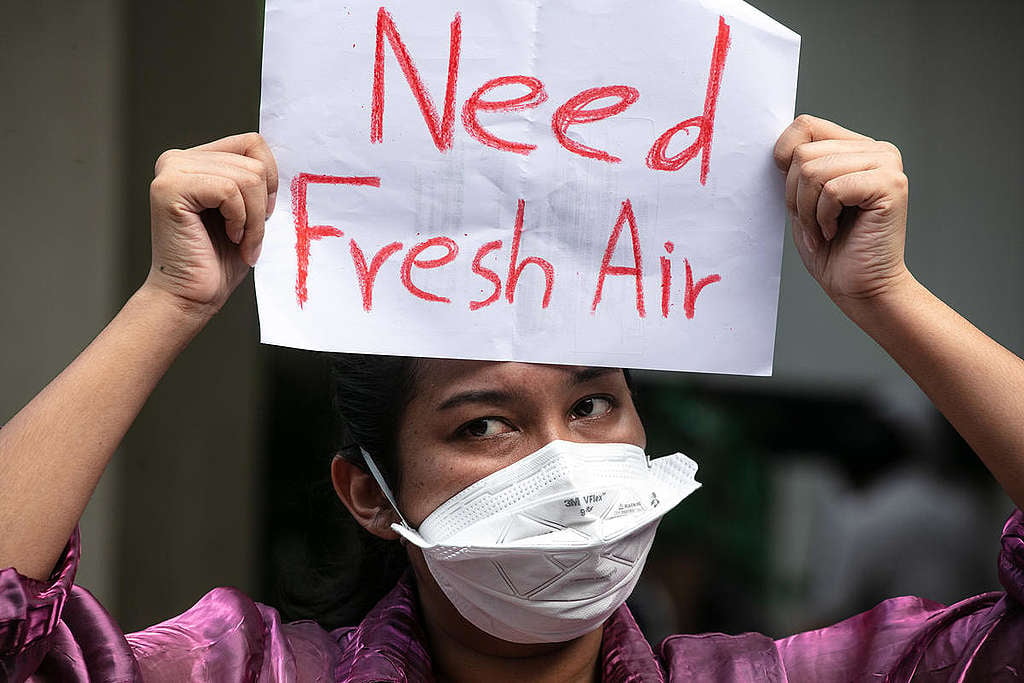
Toxic trade
The political dominance of oil is due in large part to the engineered dependence of exporting countries on revenues and of importing countries on a fuel long promoted as ‘lifeblood of the modern economy’.
Oil wars to protect or gain access to reserves are chapters through the history of the last century. The greed for oil by dominant powers has not only driven wars, coups and conflict but also impoverished Indigenous Peoples and frontline communities.
Oil profits are pumped into purchasing ever more weapons as governments make the arms trade a foreign policy tool used to secure and maintain access to oil. The relationship between the oil industry and arms dealers is in effect hand-in-glove.
While the current war in Ukraine is not overtly an ‘oil war’, Russia’s military might is underpinned by wealth garnered from the country’s vast oil and gas reserves. There is a direct relationship between fossil fuels and the Russian war machine.
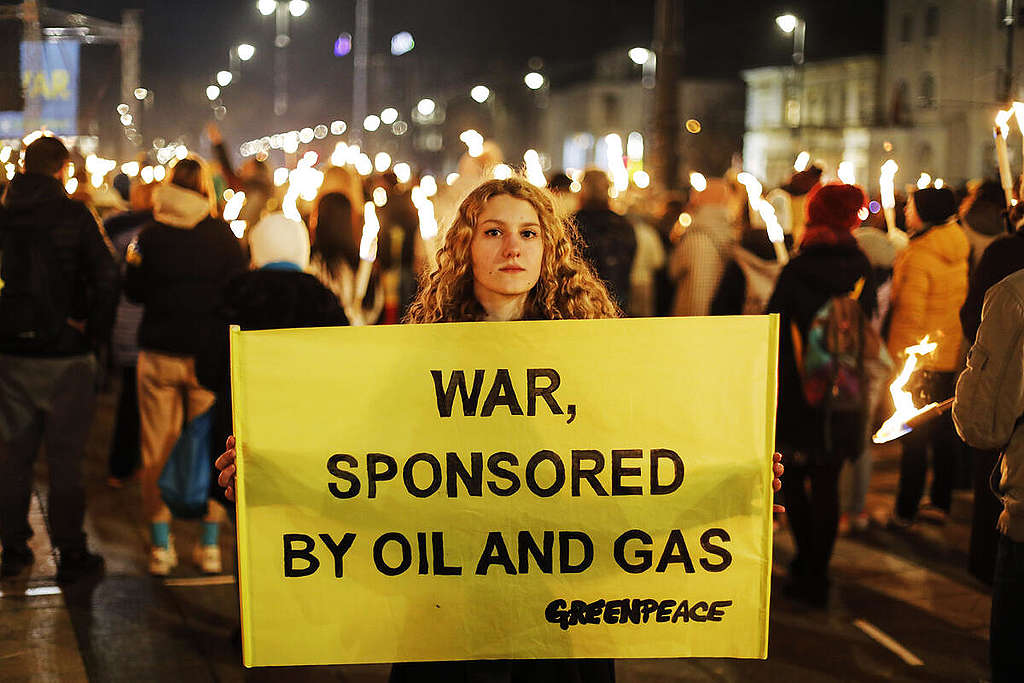
Dirty money
Spills, fires, choking air, wars caused by oil and fossil fuels have not dented the billions of dollars, euros, rubles, of oil profits raked in by a rich and powerful few. With sanctions on Russian oil, wealthy western governments turn to the Middle East to fill their ‘oil gap’.
Never ones to miss an opportunity to boost their profits and consolidate their political influence, western oil companies like BP, Shell, Exxon and Total are now reaping the benefits of massive price rise in oil and gas and using the crisis to further their own interests by encouraging governments to prioritise oil and gas production.
The last thing the world needs is more oil
While the oil industry uses greenwash and deadly propaganda to try and cover their tracks, essentially their problem is the product, not how well or otherwise it is extracted, transported, refined and used. Oil is a substance that’s toxic at every stage in its lifecycle, from extraction through to its end-use which produces emissions that are heating up the planet — that is the problem.
The industry has known that climate change is an existential threat to their business for far longer than it has been on the political agenda. It ignored and silenced its own scientists who warned of the potential threat; it funded climate deniers and lobby-groups to sow doubt. All to ensure that it could continue pumping oil and gas.
UN secretary general António Guterres described the recent IPCC report as an “atlas of human suffering and a damning indictment of failed climate leadership” caused by fossil fuels.
So who are these climate criminals, the global peddlers of toxic fossil fuels? They can be seen on every major road or highway in every country around the world. They have names and addresses. It is time to call out: BP, Shell, ExxonMobil, Conoco, Rozneft, Gazprom, CNOC, Saudi Aramco, Eni, Repsol…
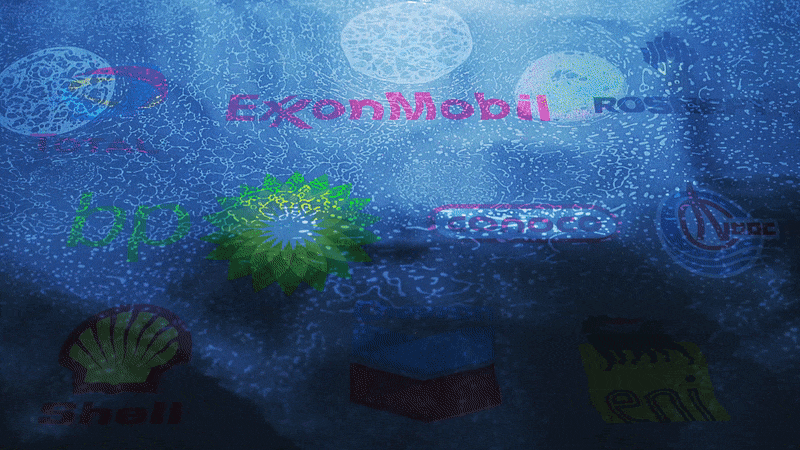
The solutions are here. Let’s go!
It is time to consign the fossil fuel industry to history. It’s time to look forward and keep pushing for the safer, more equitable future we all need. For peace and security and sustainable development, governments need to drastically cut climate wrecking emissions now and transition to clean and safe renewable energy for all.
Paul Horsman is a climate campaign lead at Greenpeace International

